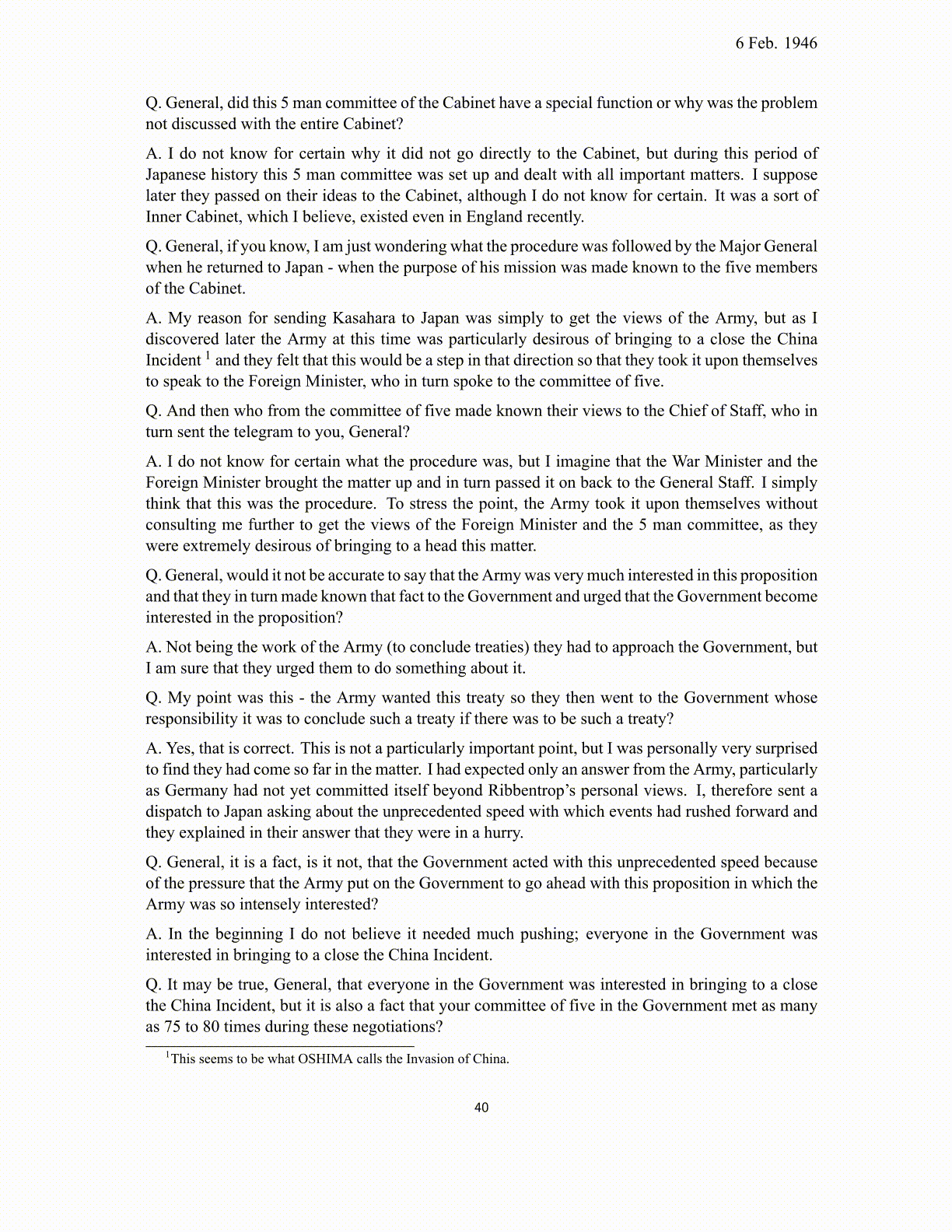
6 Feb. 1946 Q. General, did this 5 man committee of the Cabinet have a special function or why was the problem not discussed with the entire Cabinet? A. I do not know for certain why it did not go directly to the Cabinet, but during this period of Japanese history this 5 man committee was set up and dealt with all important matters. I suppose later they passed on their ideas to the Cabinet, although I do not know for certain. It was a sort of Inner Cabinet, which I believe, existed even in England recently. Q. General, if you know, I am just wondering what the procedure was followed by the Major General when he returned to Japan - when the purpose of his mission was made known to the five members of the Cabinet. A. My reason for sending Kasahara to Japan was simply to get the views of the Army, but as I discovered later the Army at this time was particularly desirous of bringing to a close the China Incident 1 and they felt that this would be a step in that direction so that they took it upon themselves to speak to the Foreign Minister, who in turn spoke to the committee of five. Q. And then who from the committee of five made known their views to the Chief of Staff, who in turn sent the telegram to you, General? A. I do not know for certain what the procedure was, but I imagine that the War Minister and the Foreign Minister brought the matter up and in turn passed it on back to the General Staff. I simply think that this was the procedure. To stress the point, the Army took it upon themselves without consulting me further to get the views of the Foreign Minister and the 5 man committee, as they were extremely desirous of bringing to a head this matter. Q. General, would it not be accurate to say that the Army was very much interested in this proposition and that they in turn made known that fact to the Government and urged that the Government become interested in the proposition? A. Not being the work of the Army (to conclude treaties) they had to approach the Government, but I am sure that they urged them to do something about it. Q. My point was this - the Army wanted this treaty so they then went to the Government whose responsibility it was to conclude such a treaty if there was to be such a treaty? A. Yes, that is correct. This is not a particularly important point, but I was personally very surprised to find they had come so far in the matter. I had expected only an answer from the Army, particularly as Germany had not yet committed itself beyond Ribbentrop’s personal views. I, therefore sent a dispatch to Japan asking about the unprecedented speed with which events had rushed forward and they explained in their answer that they were in a hurry. Q. General, it is a fact, is it not, that the Government acted with this unprecedented speed because of the pressure that the Army put on the Government to go ahead with this proposition in which the Army was so intensely interested? A. In the beginning I do not believe it needed much pushing; everyone in the Government was interested in bringing to a close the China Incident. Q. It may be true, General, that everyone in the Government was interested in bringing to a close the China Incident, but it is also a fact that your committee of five in the Government met as many as 75 to 80 times during these negotiations? 1 This seems to be what OSHIMA calls the Invasion of China. 40